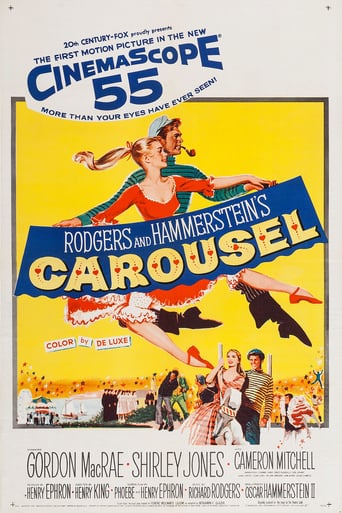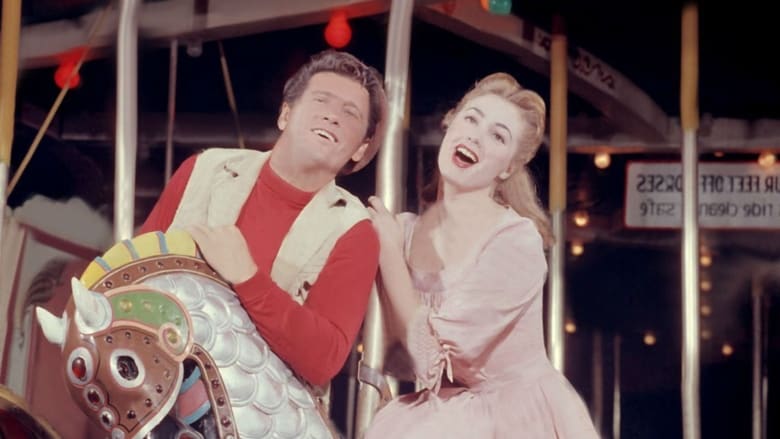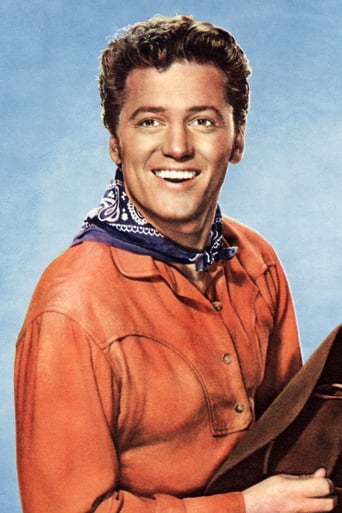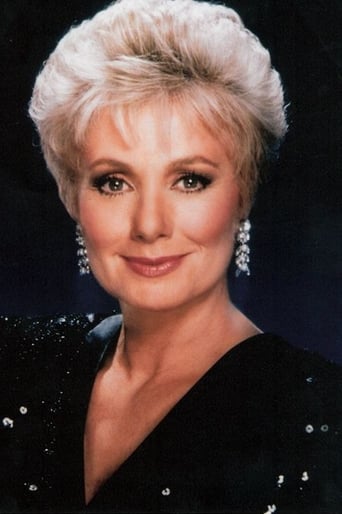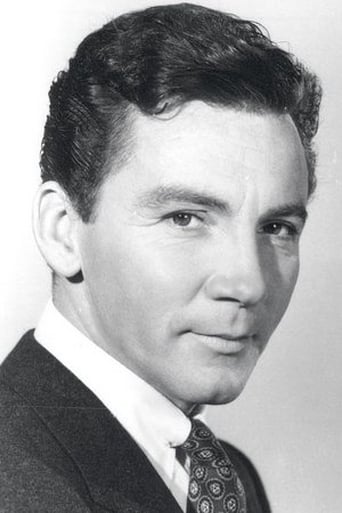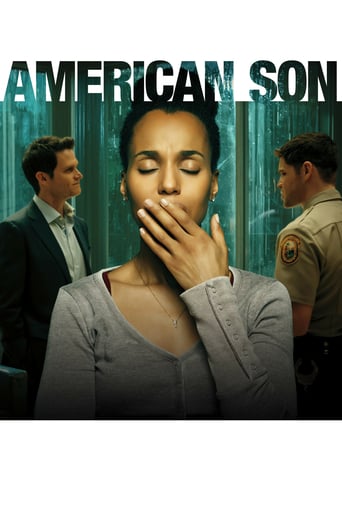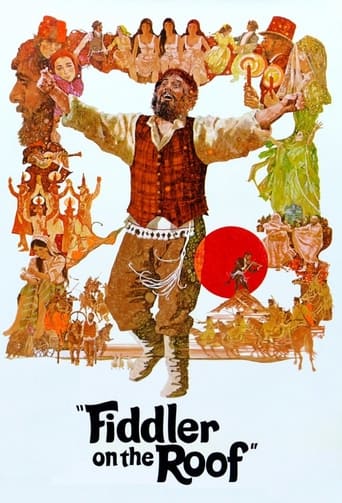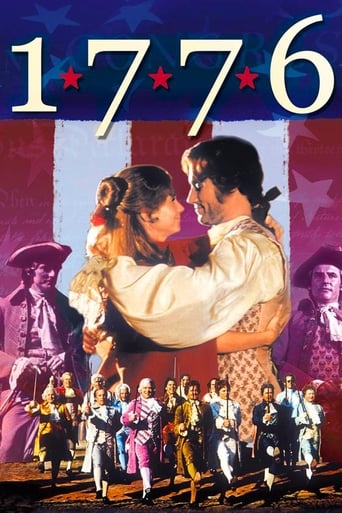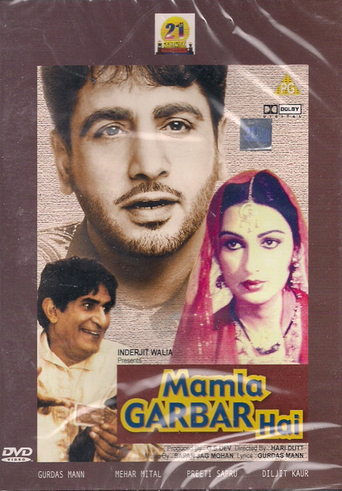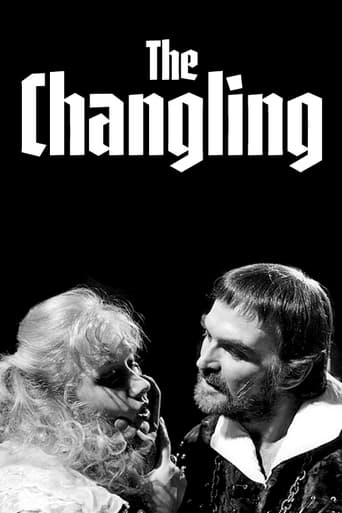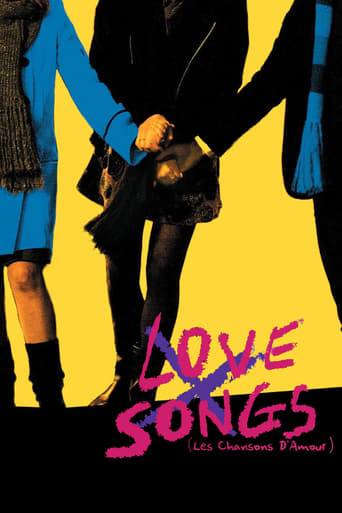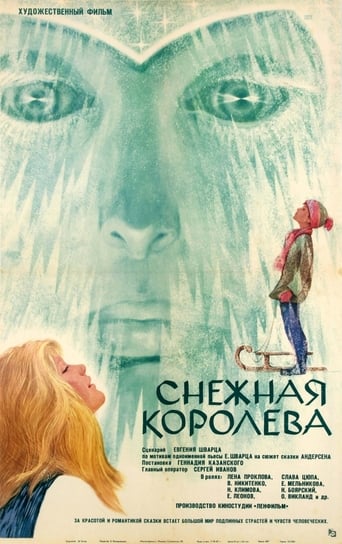Carousel (1956)

Billy Bigelow has been dead for 15 years. Now outside the pearly gates, he long ago waived his right to go back to Earth for a day. He has heard that there is a problem with his family: namely with his wife Julie Bigelow, née Jordan, and his child he hasn't met. He would now like to head back to Earth to assist in rectifying the problem; but before he may go, he has to get permission from the gatekeeper by telling him his story. Adapted from the Rodgers and Hammerstein hit Broadway musical.
Watch Trailer
Cast


Similar titles
Reviews
Such a frustrating disappointment
Great Film overall
It's an amazing and heartbreaking story.
Like the great film, it's made with a great deal of visible affection both in front of and behind the camera.
Before I get into the crustaceans and potatoes of this motion picture I want to reminisce about the play Carousel which my older sister appeared. No, it wasn't on Broadway. Actually my sister was acting at the ripe old age of 13 on stage at Camp Ma-Ho-Ge in Bethel,New York. The cast of the production consisted of the group labeled the"Subbies " were to perform the play Carousel on stage for the rest of the campers. My sister Donna's name was proudly displayed in the program playing the supporting role of Cousin Nettie Fowler. The play focuses on the struggling Carnival barker Billy Bigelow and his love interest Julie Jordan. I figured my Sister would be insignificant and probably had a few lines here and there being a supporting actor. My Sister was in the background most of the play. When it was her turn to shine she barged through and ran with it singing "June Is Bustin Out All Over" and then took the background cast by the hand and lead them off stage through the crowd creating a makeshift conga line continuing the song as the crowd stood in deafening rousing applause. I was so proud of her. Unfortunately my Parents weren't present and that's the penalty for sending your kids off to sleep away camp.Most musicals up until that time, the mid 1950's had the narratives on the lighter side of life. Nothing drastic like Romeo and Juliet but on the lighter side. Lovers quarrels or a young actor or actress trying to break into show business was the theme with bountiful choreography and singing. Carousel the film has all those qualifications and then some. The story takes place in a coastal Maine fishing village coined Boothbay Harbor which also has a Carnival in it's town. Our star is the colorful, handsome, quick talking Billy Bigelow played by Gordon MacRae. Billy has a girlfriend Julie Jordan (Shirley Jones) who works at the local mill. They both get fired for different reasons. Billy gets fired by his boss a jealous Mrs. Mullins, (Audrey Christie) for spending more time with Julie. Julie gets dismissed from the mill for staying out past the required curfew. I assume they get married (not shown in the film), and move in with Cousin Nettie (Claramae Turner). Still infatuated with Billy, Mrs. Mullins offers Billy his job back at the carnival provided he leaves his wife for her. To complicate matters, Julie gets pregnant and Billy has trouble finding other work to provide for the expectant child. Desperation leads to tragedy. Just a great story layered with beautiful cinema-scope. The June Is Busting Out All Over scenes and the Clambake are brilliantly photographed. The duets with MacRae and Jones match each other perfectly and are pleasant to the ear. Just a fine mix of serious subject matter in a bustling New England Town. There are special effects used in the later scenes which will bring a tear to your eye but every time this musical is aired on Television I'm transformed back to that wonderful summer night off the Silver lake shore during the Mid-1960's and the show stopping act my sister Donna pulled off to the electrifying crowds at our camp.
I had no expectations at all and knew nothing about it when I was given a chance to see this in my country the least known of Rodgers-Hammerstein musicals. The first thing you are met with is some metaphysics, and then the show starts and goes on throughout in splendour and marvellous choreography throughout in a very rustic environment of fishermen and very ordinary people, who by the music are raised to a lyrical level of some prominence. It's a wonderland of beauty very originally mixed up with great human passion and drama including an upsetting tragedy with reverberating shock effects. The story is curiously exotic and strange for an American musical, but then the original story is actually Hungarian taking place in Budapest and is a bleak tragedy indeed, which even Giacomo Puccini asked permission of the author to make an opera of, which he would not risk it getting debased by. Rodgers & Hammerstein succeeded in transforming it for the stage and make it work with wonder, changing the end, of course. The actors, none of them very known today, are all outstanding, and no objections against the story and its morals or lack of morals are justified. This is a fairy tale brought down to reality with its metaphysics and fairy tale wonders made real in the cinema and enhanced by the overwhelming excellence of the music. You can see it as a morality, of course, but then it is a very edifying one, turning the bleak tragedy of failed human efforts at some worldly success and love into a triumph of the actual good will. This is not only a film to wonder at and enjoy but to do so more than once and again.
It was 1944-5: late in WWII. R&H's two recent plays or films had emphasized the idyllic rural Americana that many servicemen would be returning to, at least initially. The general euphoria of "Oklahoma" was marred only by the brutish malcontent Jed. Meanwhile, R&H contemplated the challenging possibility of adapting thorny Hungarian Ferenc Molnar's 1909 tragic play "Liliom" into a semi-tragic musical: giving it a sometimes carnival atmosphere, rather like their concurrent "State Fair" film, as well as an oceanside location, providing further opportunities to lighten the overall screenplay. Also, they provide a somewhat hopeful ending in place of Molnar's pessimistic ending. Molnar initially refused to allow a musical adaptation, but was blown away upon seeing "Oklahoma", thus changed his mind. However, he still had a hand in molding the final screenplay.Playing the main character, Gordon MacRae personifies a very different character than the 'boy next door' Curley he had just recently played in "Oklahoma". In fact, Billy Bigalow is much like menacing Jed: the villain in "Oklahoma". In fact, Liliom was Hungarian slang for 'tough guy'. He anchors his self esteem on his bluster as a carnival barker and roustabout, his facility with fists, and proclaimed popularity with the opposite sex. Only in the last characteristic does he differ markedly from Jed. He even dies similarly to Jed, by an accidental knife stabbing, following a criminal act.As a seaside New England carnival barker and roustabout, Billy has a public platform for expressing his animal magnetism and to meet many impressionable young women. But, he has a complex relationship with his widowed employer, who much values his charisma for attracting customers, some of whom he romances transiently. But she also clearly has an implied sexual relationship with him, and doesn't want to lose him to another woman. She detects too strong a scheming girl in millworker Julie, and orders him to keep away from her, or he will lose his job. He makes an ultimately poor decision. Likewise Julie loses her job, because she stays out too late with Billy to return to the company rooming house(apparently all are single young women) before the door is locked. Both are given a chance to redeem their 'mistake', but decline, despite both claiming they don't really love the other: thus "If I Loved You", with an emphasis on the 'if'. Very strange and ultimately tragic behavior! Soon, Billy finds that he really misses his old job, and probably would have left Julie at the beckoning of his former employer, who also really misses him, except that Julie reveals that she is pregnant, which causes him to change his mind. Unfortunately, neither he nor Julie can find adequate alternative employment. Despite financial help from a relative, Billy is talked into a robbery attempt by his shady friend Jigger. It goes very wrong, and he ends up falling on his knife(very clumsily done), in an attempt to escape police.The remainder of the screen play focuses on the troubles of his then teen daughter, who is ostracized by her schoolmates and their parents for being a poor, fatherless, girl, whose father was a thief and wife beater, and also upon the question of whether Billy's soul can be redeemed, in the eyes of God, if he is given one day back on earth to try to help his daughter from going down a wrong path. The final scene vaguely hints that he passed this test. Unfortunately, his minimal participation is hardly convincing in solving her basic problem. Also, we don't have any clue what she does after the graduation ceremony. Thus, I find the ending quite unsatisfactory, despite Lockhart's speech about not allowing one's parents' failings or bad luck to stand in the way of pursuing your dreams.The film begins with a surreal scene, with Billy in some celestial waiting room, polishing plastic stars on strings, and arguing with the starmaster(apparently one of God's bureaucrats, played by Gene Lockhart), about whether he can or wants to return to earth for one day to try to help his daughter and perhaps see Julie. Later, when he does go, he tries to give his daughter a star he stole, but she doesn't want it. The intended significance of the star(s) is left to our imagination. Thus, this whole fake star business comes across as quite ridiculous, leading nowhere! It's holdover baggage from "Lilion"Of course, R&H composed some of their most memorable songs, including the rousing "The Carousel Waltz", the questioning "If I Loved You", the euphoric dance-inspiring "June is Bursting Out All Over", the resigned "What's the Use of Wondering", the inspiring "You'll Never Walk Alone", the determined "Soliloquy", the joyous "This Was a Real Nice Clam Bake" and the romantic "When the Children Are Asleep".As in "Oklahoma", there are two impressive dance productions, one ballet-styled. While Agnes de Mille wasn't on hand to direct the ballet, as she had been for the one in "Oklahoma", the ballet is based upon her creation for the stage version. Notice that, like several of Gene Kelley's ballets, hers depict the inner turmoil, as well as happiness, of the main subject(Billy's daughter, Louise, in this case). Her sense of a joyous free spirit, as well as her ostracism by mainstream society, is acted out, as is her attraction to carnival people, presumably in mimicry of Billy's youth."Carousel" may have been Roger's favorite of his R&H productions, and Shirley's favorite role, but it was not the favorite of audiences, with the flawed main character, and bizarreness and limitations of portions of the screenplay.
"Carousel" is the musical version of the old film "Liliom"--a story that was filmed many times since 1919. While I've not seen either silent version, I have seen the Frank Borzage version (1930) and the French language version by Fritz Lang (1934). I wasn't impressed by either of these films--mostly because the leading character was pretty despicable. He's a very selfish character who horribly mistreats his poor wife--and I wonder how they can make this a romance with such a horrible guy, as it severely undermines the story. So, "Carousel" begins with a major handicap, as hating the leading character makes it hard to fall in love with the film.The film begins in New England. A very impressionable young lady (Shirley Jones) sees a handsome rogue (Gordon MacRae) at the carnival and the two inexplicably fall in love and decide to marry. I say inexplicably because he is a real womanizer and NOT the type to ever settle down. As for the marriage, it is a disaster--mostly because he is a ne'er-do'-well who is afraid to work or commit himself to his lovely wife. At times, such as when he learns he's about to become a father, he commits to changing but invariably he ends up returning to his old ways. Now I was a bit uncomfortable about this, as he apparently slapped his bride around--but they made LOTS of excuses for it, such as saying 'he's under a lot of pressure' or 'I only hit her once'! So much for a film that will empower the women in the audience! I just couldn't get past the fact he was a jerk who died while trying to rob someone! This story is apparently all part of some flashback. You see, MacRae's character is dead and he's telling this to the head honcho up in Heaven because he wants permission to return for one and only one brief period. Now considering most of the flashback consists of him acting like a clod, you wonder how this is all going to convince the powers that be to grant his request! As for the music, it's decent but the film clearly lacks the crowd-pleasing tunes of many of Rogers and Hammerstein's other works. "South Pacific", "Oklahoma" and the rest had more memorable songs--and didn't have to work so hard to compensate for an unlikable lead. Here, it's an uphill battle. Pretty, well made...but still a film that I had a hard time liking. Overall, it looks good but fails. Watchable but among the least in the Rogers and Hammerstein canon.

